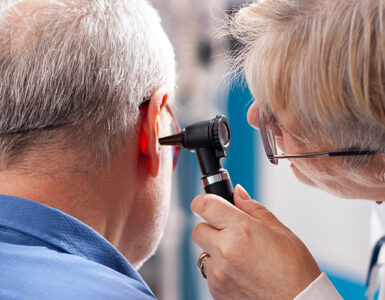Adolescence brings unique challenges, especially for gender diverse youth and their families. Embracing and affirming your child’s gender identity is vital to nurturing their mental and emotional well-being. When parents understand the specific struggles transgender adolescents may face and can recognize signs of distress, they create a supportive environment where their children can truly thrive.
Understanding Transgender Identity in Youth
Transgender youth have a gender identity that does not correspond with the sex they were assigned at birth. Transgender people may know their gender identity starting at a young age (as young as 3-4 years old) while other people may not understand their gender identity until they are a teenager or an adult. For youth, recognizing this identity can be a vulnerable time as they explore and assert their true selves.
Acceptance and support from family are pivotal at this stage, as they significantly impact the child’s self-esteem and development as they approach adulthood.
Signs Your Adolescent May Be Transgender
A young person who’s questioning their gender identity won’t always talk about it openly or ask for help, even from their parents. This means it’s important for parents to recognize signs that their child might be transgender or struggling with their identity.
Adolescents who are transgender may display some of the following behaviors and signs:
- Consistent and insistent verbalization about their gender identity being different from their assigned sex at birth
- Strong preferences for clothing, hairstyles or activities that align with their gender identity
- Expressing discomfort or distress with their physical changes during puberty
- Using names or pronouns in social settings that correspond with their gender identity rather than their gender at birth
Common Challenges Faced by Transgender Adolescents
Adolescence may be a difficult time for transgender youth due to a variety of social, emotional and systemic challenges they may face, including:
- Mental health risks: Due to the compounded stresses described below, transgender youth have higher rates of mental health disorders, including depression, anxiety and suicidal thoughts. Recent research shows that transgender and gender questioning high school students experienced higher rates of violence, poor mental health, and suicidal thoughts and behaviors compared to their cisgender peers. Nearly two in 10 LGBTQ+ young people attempted suicide and an estimated 41 percent of LGBTQ+ young people seriously considered attempting suicide in 2023; young people who are transgender, nonbinary and/or people of color reported higher rates than their peers.
- Stigma and lack of social acceptance: Transgender youth often face significant stigma and discrimination from society, peers and even family members. Being mistreated and stigmatized can lead to feelings of isolation, rejection and alienation.
- Bullying and harassment: Many transgender young people experience bullying at school, online and at home. This can contribute to severe stress, anxiety and depression. Increases in school-based violence and absenteeism due to safety concerns also impact transgender students disproportionately. In 2023, four in 10 transgender and gender questioning students were bullied at school and over 1 in 4 transgender students skipped school because they felt unsafe.
- Disapproval and criticism from family: Not all transgender youth receive support from their families. In fact, only about one-third of transgender youth report living in accepting, gender-binary homes. Unsupportive family environments can exacerbate feelings of loneliness and lead to worsened mental health struggles.
- Gender dysphoria: Gender dysphoria describes distress caused by a discrepancy between a person’s gender identity and their sex assigned at birth. This can affect someone’s mental health and self-worth.
- Limited access to healthcare: Finding medical providers who are knowledgeable and supportive of transgender health issues isn’t always easy, depending on the person’s resources and where they live. Recent research shows that over one third of LGBTQ+ individuals living on Long Island have been treated disrespectfully or in a non-affirming way in healthcare. Some transgender people struggle to access gender-affirming treatments such as hormone therapy or surgeries, which are important for many transgender people and can help mitigate mental health risks, including depression and suicidality. More than one-third of transgender youth in the U.S. live in states that have enacted bans on access to gender-affirming care.
- Legal and institutional barriers: Transgender people of all ages often face difficulties in changing their legal documents to reflect their gender identity. They can also encounter institutional barriers in schools, workplaces and other settings.
When to Seek Professional Help
If you notice signs of distress in your child, such as persistent sadness, withdrawal from social activities or comments about self-harm, it’s crucial to seek professional help as soon as possible. Early intervention by specialists trained in adolescent and transgender health can provide the necessary support and prevent more severe mental health issues.
Treatment and Support Options
Transgender adolescents can gain support from their family, teachers and professionals with approaches that include:
- Medical support: It’s important that medical providers understand common health risks among transgender youth, and are able to screen for these risk behaviors and provide risk reduction guidance appropriately. Access to healthcare professionals who understand and respect a child’s gender identity is also crucial. Gender affirming services might include hormone therapy, puberty blockers, voice therapy and ongoing medical monitoring.
- Mental health care: Counseling services that specialize in LGBTQ+ issues can help your child navigate the emotional aspects of their journey. Support groups for both the youth and family members can also be beneficial to reduce isolation and depression.
- Educational support: Collaborate with your child’s school to ensure they are in a safe and supportive environment that protects against bullying, violence and harassment. Educational plans might need adjustments to accommodate your child’s needs. School programs can also help promote adolescent well-being by teaching quality health education that includes discussion of LGBTQ+ issues, connecting young people to needed health services and support, and making school environments more inclusive and safer.
- Legal support: Understand your child’s legal rights in school and in the healthcare system to advocate for their rights.
Stony Brook Children’s Adolescent Medicine department is uniquely equipped to support transgender adolescents and young adults by providing affirming, comprehensive primary and subspeciality care. Led by Division Chief Allison Eliscu, MD, our multidisciplinary team offers comprehensive care that addresses not only the medical aspects of transitioning, but also the emotional and developmental needs unique to transgender adolescents. Our services include developmentally-appropriate routine primary care, gynecological care, risk reduction counseling, mental health services, linkage to care for gender affirming hormonal and surgical care, and support for navigating social challenges related to gender identity.
Additionally, Stony Brook provides family support through a 14-week Educational Support Group for parents and caregivers of transgender and gender-diverse children. This group focuses on educating participants about the challenges of gender diversity, providing peer support, and discussing ways to navigate social challenges and access gender-affirming services.
For a list of providers that provide high-quality primary care, subspecialty and surgical care for adolescents through older adulthood, visit our LGBTQ* Care Provider Page. For help finding centers that support transgender youth, visit our LGBTQ* Centers resource page.












